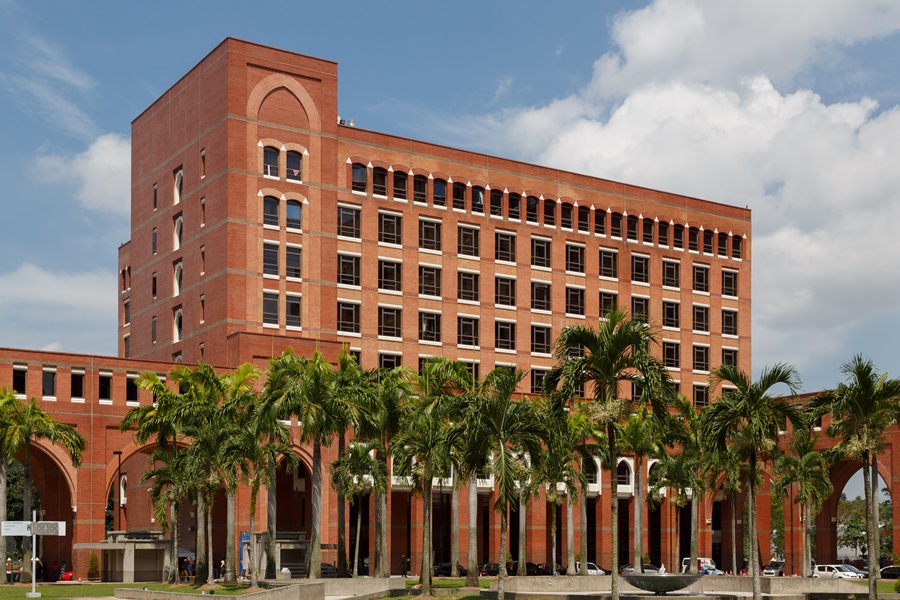The Malaysian government is looking to leverage the advantages of blockchain to improve the different sectors in the country. As such, it has shaken hands with South Korean blockchain firm IncuBlok to develop a blockchain platform that will be compliant with the country’s Sharia law, Cointelegraph reported.
One of the advantages that blockchain can provide is in monitoring of halal (permissible) foods during the whole distribution process. Muslims strictly follow the tenets of their religion so they’re quite meticulous when it comes to the origins of their food. Blockchain can provide that security while making sure a product remains fresh, from when it leaves the farm until it is served on the table.
The Malaysian government recognizes the technology’s capabilities so it brought in IncuBlok to help with blockchain development. The South Korean firm has already signed a Memorandum of Understanding (MOU) and will work with its international partner, Global Cornerstone Group, to help the Malaysian government achieve its goal.
IncuBlok CEO Kwon Won-seon said that their knowledge and expertise in this innovation will be key to the success of this endeavor. "I will make a great effort to utilize the know-how of the blockchain we have accumulated over the years to develop the Islamic blockchain platform practically,” the CEO said.
Currently, South Indian state Kerala is also developing a blockchain-based platform that will monitor the quality of food supplies by tracking them, beginning with where they were produced to the place where consumers will purchase them. The system will utilize Radio Frequency Identification (RFID), which will be used in each step of the distribution process to ensure that food products will remain of high quality.
The Malaysian government can potentially launch a similar system where it will track halal products and assure citizens that what they’re eating was indeed prepared in compliance with their beliefs.
A somewhat similar situation is occurring in the west, where consumers scrutinize the provenance of products. For instance, they’re willing to pay more for meat from animals that were raised in a humane manner and environment.
The problem is that it’s difficult to assure that a product did meet this requirement. For this reason, a Wyoming senator started a cattle blockchain ledger that would provide credible proof that the animals on a farm are indeed reared in a free-range environment.
The supply chain is but one of the many areas where government and private entities can leverage blockchain’s potential. For the Malaysian government, all they have to do is to find a middle ground that would adhere to the Sharia law while improving the lives of its citizens.



 SpaceX Pushes for Early Stock Index Inclusion Ahead of Potential Record-Breaking IPO
SpaceX Pushes for Early Stock Index Inclusion Ahead of Potential Record-Breaking IPO  Global PC Makers Eye Chinese Memory Chip Suppliers Amid Ongoing Supply Crunch
Global PC Makers Eye Chinese Memory Chip Suppliers Amid Ongoing Supply Crunch  Anthropic Eyes $350 Billion Valuation as AI Funding and Share Sale Accelerate
Anthropic Eyes $350 Billion Valuation as AI Funding and Share Sale Accelerate  SpaceX Prioritizes Moon Mission Before Mars as Starship Development Accelerates
SpaceX Prioritizes Moon Mission Before Mars as Starship Development Accelerates  Sam Altman Reaffirms OpenAI’s Long-Term Commitment to NVIDIA Amid Chip Report
Sam Altman Reaffirms OpenAI’s Long-Term Commitment to NVIDIA Amid Chip Report  Jensen Huang Urges Taiwan Suppliers to Boost AI Chip Production Amid Surging Demand
Jensen Huang Urges Taiwan Suppliers to Boost AI Chip Production Amid Surging Demand  Tencent Shares Slide After WeChat Restricts YuanBao AI Promotional Links
Tencent Shares Slide After WeChat Restricts YuanBao AI Promotional Links  Nvidia Nears $20 Billion OpenAI Investment as AI Funding Race Intensifies
Nvidia Nears $20 Billion OpenAI Investment as AI Funding Race Intensifies  Palantir Stock Jumps After Strong Q4 Earnings Beat and Upbeat 2026 Revenue Forecast
Palantir Stock Jumps After Strong Q4 Earnings Beat and Upbeat 2026 Revenue Forecast  Amazon Stock Rebounds After Earnings as $200B Capex Plan Sparks AI Spending Debate
Amazon Stock Rebounds After Earnings as $200B Capex Plan Sparks AI Spending Debate  AMD Shares Slide Despite Earnings Beat as Cautious Revenue Outlook Weighs on Stock
AMD Shares Slide Despite Earnings Beat as Cautious Revenue Outlook Weighs on Stock  SoftBank and Intel Partner to Develop Next-Generation Memory Chips for AI Data Centers
SoftBank and Intel Partner to Develop Next-Generation Memory Chips for AI Data Centers  Elon Musk’s Empire: SpaceX, Tesla, and xAI Merger Talks Spark Investor Debate
Elon Musk’s Empire: SpaceX, Tesla, and xAI Merger Talks Spark Investor Debate  SpaceX Updates Starlink Privacy Policy to Allow AI Training as xAI Merger Talks and IPO Loom
SpaceX Updates Starlink Privacy Policy to Allow AI Training as xAI Merger Talks and IPO Loom  Google Cloud and Liberty Global Forge Strategic AI Partnership to Transform European Telecom Services
Google Cloud and Liberty Global Forge Strategic AI Partnership to Transform European Telecom Services  Sony Q3 Profit Jumps on Gaming and Image Sensors, Full-Year Outlook Raised
Sony Q3 Profit Jumps on Gaming and Image Sensors, Full-Year Outlook Raised 































